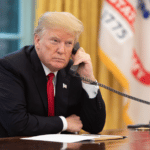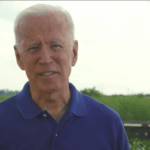


Manhattan District Attorney Alvin Bragg is asking a judge to uphold former President Donald Trump’s conviction on multiple charges, arguing that a recent Supreme Court decision does not grant him immunity.
NBC News reported that Bragg's prosecutors assert that the Supreme Court's ruling on presidential immunity does not affect Trump's conviction for falsifying business records.
The controversy centers on the interpretation of a Supreme Court decision that addressed the scope of presidential immunity. Trump’s legal team has sought to leverage this ruling to dismiss his conviction, which includes 34 felony counts.
However, New York prosecutors argue that the ruling is irrelevant to Trump's case, which involves actions they classify as "unofficial acts."
The Supreme Court had delineated immunity protections for actions taken during Trump's presidency as "official acts." According to state prosecutors, the charges Trump faces do not fall under this category, thus exempting them from immunity protections.
In response, Trump's attorneys have pushed for the charges to be dismissed or for a new trial to be ordered. They contend that certain evidence admitted during the trial pertained directly to Trump's presidential duties, and thus, should not have been considered.
Todd Blanche, one of Trump's attorneys, recently submitted a letter to the court. He sought to address what he described as "legal and factual misrepresentations" in the DA’s latest filings.
The case is now before Judge Juan Merchan, who is expected to issue a ruling on these legal challenges by September 6. The outcome will significantly impact Trump, whose sentencing was originally scheduled for early July but has been postponed to mid-September.
This delay allows the court additional time to consider the intricate legal arguments presented by both sides. The implications of Judge Merchan’s upcoming decision are profound, as they could set precedents regarding the accountability of former presidents.
Trump was convicted on all counts in May, marking an unprecedented moment in American history as he became the first former U.S. president to be criminally convicted.
The charges against him are linked to falsified business records related to a hush money payment made to Stormy Daniels during the 2016 presidential campaign. Trump has vehemently denied any wrongdoing associated with these charges.
“The criminal charges here, by contrast, exclusively stem from defendant’s ‘unofficial acts’ — conduct for which ‘there is no immunity,’” the DA’s office contended in their filing, directly challenging the grounds of Trump’s defense.
Conversely, Trump's legal team argues, “In order to vindicate the Presidential immunity doctrine, and protect the interests implicated by its underpinnings, the jury’s verdicts must be vacated and the Indictment dismissed.” This assertion highlights the central theme of their defense — that the presidential immunity doctrine should shield Trump from these charges.
As the legal proceedings unfold, public interest remains high. The case not only tests legal boundaries but also holds significant political implications.
The ongoing debate over presidential immunity and the accountability of former officials continues to draw attention from legal experts, politicians, and citizens alike.
With the judge’s decision pending, the legal community and the public eagerly await what may be a landmark ruling. The decision will likely influence future prosecutions of high-ranking officials and clarify the limits of presidential immunity.
Regardless of the outcome, this case will undoubtedly be remembered as a significant chapter in U.S. legal and political history.
In summary, the Manhattan DA's office is challenging the application of a Supreme Court ruling on presidential immunity in the case against Donald Trump, who faces charges they claim are unrelated to his official duties as president.
Trump’s legal team counters that the charges should be dismissed on the grounds of this immunity.
As the legal battle continues, all eyes are on Judge Merchan’s forthcoming decision, which promises to be a defining moment in this high-stakes judicial process.



